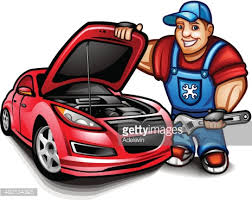Replacing car parts is expensive, and if anything, most car owners would like to take good care of their vehicles in order to prevent frequent repairs and replacements. That said, there still are a good number of habits that many drivers have gotten used to, either consciously (in an effort to seem experienced, perhaps?) or as a result of poor instruction, which is directly linked to wearing down parts of your car prematurely. The clutch, sadly, tends to be one of the most common victims, and often needs to be replaced a few years in as a result – when it should actually be lasting far longer. Here are some tips to ensure you are not shortening, but prolonging the life of your clutch:
- Preventing rollback with your clutch – one practice that you might sometimes be taught in driving schools is that of keeping the vehicle still whilst on slopes or hills by balancing the clutch pedal properly. Unfortunately, keeping the vehicle at a standstill without using the brake and relying on the clutch is a very easy way to wear down this specific car part. Whilst you will obviously need to balance the clutch in order to get the car moving again, it is ill-advised to use the clutch as a substitute for your brakes. If using the brake pedal is difficult for you, you might instead want to try using the handbrake (fully or partially) – so you can avoid having to buy a costly mitsubishi evo clutch in the near future!
- Making unnecessary upgrades such as increasing the engine power – if you do not want to buy a Nissan patrol clutch before the expected lifespan of your clutch, you better avoid specific upgrades such as the increasing of the power of your engine bay. Simply put, engine torque is related to how fast a clutch wears down, and most vehicle (if not all) clutches are built considering the original engine torque that the vehicle is pre-built to have. By increasing the engine power, you will definitely change the engine torque as well, and this can in turn affect the rate at which your clutch is wearing down – basically, faster.
- Towing heavy loads and burnouts – as you would know, every vehicle comes with a specified weight limit they can tow: beyond that, you will be putting too much of a burden on the vehicle’s engine. Even with you tow within the limits specified, if you do not know how to smoothly shift, you will inevitably wear down the clutch much more quickly. Likewise, burnouts are another easy method to ‘burn’ your clutch – no matter how careful you are, this specific activity will definitely have a negative impact on your clutch.

